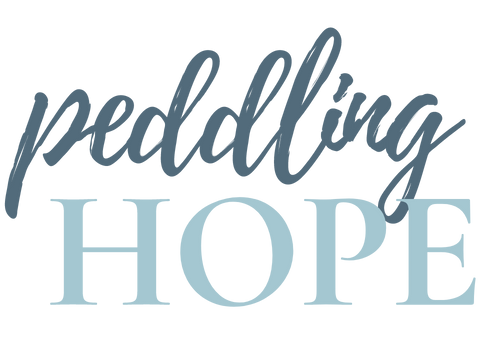Healing and Growing Post-Trauma
Do you plant a garden in the spring? It is hard work getting the ground ready, planning where to plant the seeds, and edging the areas in between. But then, it blooms!
Summer can be a time of watching things grow and flourish. We may need to do some maintenance to protect the garden from critters and weeds. But such is life. Things tend to move into a state of disorder. Our role is to gently move things back into alignment.
Many things in life are like planting a garden – the hard work is upfront, and then we maintain it from there.
Trauma is similar. It is not the event but the wound that we are tending. The cause of the wound is secondary. (This is why I do not talk about trauma as a capital "T" or small "t" trauma. It does not give us any information on the magnitude of the wound.)
When we have a physical injury, like a broken bone, a lot of work goes into setting it right upfront—x-rays, surgery, casts, and medication for pain. Then, we allow time for the bone to heal while maintaining the work done upfront.
Emotional injuries are similar. It may take time to find the right therapist and/or medication. In the beginning, there is a lot to do to put the right healing elements in place. Then, there is growth.
What is Post-Traumatic Growth?
This is what happens after the injury if the proper elements for healing have been put in place, just like in our garden. It can be long after the event that caused the injury. But, at some point, you may be looking for relief from the suffering and are ready for healing to begin.
Like with a physical injury, the hard work may be at the beginning—establishing relationships with healing professionals like a family doctor, naturopathic doctor, therapist, osteopath, or other body-based workers. These individuals are trained to help you find your baseline and work to restore it.
Post-Traumatic Growth can be the unexpected outcome of tackling a difficult experience.
The hard work of healing can be the catalyst that leads to a transition – a new way of looking at life.
Like weeds in the garden, there may be distress from time to time as a result of the emotional wound sustained by the trauma, but the injury itself can be the thing that inspires us to live differently.
Trauma undoubtedly changes a person. As we work to take care of the wound it has left, we have an opportunity to reimagine life from that point onward. It does not alleviate suffering altogether, but it is an opportunity to think deeply about life itself and our life in particular.
Domains of Post-Traumatic Growth
Viktor Frankl’s book Man’s Search for Meaning is the first place I encountered the idea of growing after trauma.
Frankl lost his whole family in the Holocaust, yet he emerged with the inspired idea that “Everything can be taken from a man but one thing: the last of the human freedoms—to choose one’s attitude in any given set of circumstances, to choose one’s own way.”
Although we may not be able to change what happened, we can decide to embark on a healing journey.
Frankl says, “When we are no longer able to change a situation, we are challenged to change ourselves.” We are changed by the things that happen to us. However, in recovery, we can decide how.
Personal Strength
Moving through something difficult can show you how resilient and strong you are. You faced a challenge and you survived.
Growth shifts us from yearning to understand why this thing happened to me to a strong conviction of I have the strength to recover.
During physical exercise, the muscle tears and breaks down. Strength is obtained in the recovery. Just like with an emotional injury.
Closer Relationships
Going through something traumatic may open you up to counting on people by recognizing the people you CAN count on.
It is an opportunity to develop camaraderie with others who have experienced adversity, compassion for what others are currently going through, and more self-compassion.
Appreciation for Life
Trauma can leave us identifying and reordering our priorities. Adversity can show us the value of life and the importance of the simple things, like spending time with people you love, the beauty of nature, the ritual of a cup of tea and a quiet afternoon.
We may become especially grateful for things in our lives that bring us comfort.
New Possibilities
Recovery may also lead to changes in our lives, work, relationships, and community. We may want to explore new opportunities and we may have a willingness to set new goals in life.
A new appreciation for life may lead us to fully immerse ourselves in new possibilities. As a species, we are especially innovative when we are challenged. It is in our adaptation that we have survived!
Spiritual Development
Healing work can bring a deeper awareness of how things are connected. When we’ve been hurt, it can prompt us to look for meaning & purpose in our lives.
Rather than going through the day-to-day motions of life, we may want a bigger picture view. This existential quest of “Who am I now?” may have us questioning and redefining our beliefs.
Things often feel more real, perhaps urgent, after a traumatic experience.
It is important that you take time to heal a traumatic wound. Honestly, it can take a lifetime when you decide to be on a path of healing.
We are always growing and changing. The good news about a mindset of post-traumatic growth is that you decide how you will change and who you will be as you journey.

